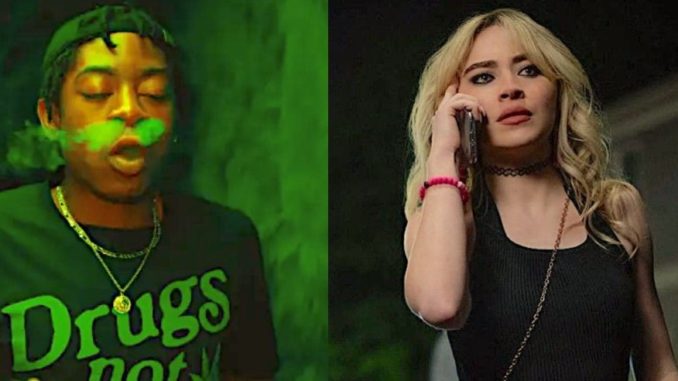
If you haven’t seen it by now, Emergency is an adventurous journey into college life with a tailspin disruption that rocks the world of three male students. Sean (RJ Cyler), Kunle (Donald Elise Watkins), and Carlos (Sebastian Chacon) had exciting plans for the night when they discover an unconscious White female in their living room.
Kunle, an exceptional African student who has been accepted in an Ivy League doctoral program, suggests what some would deem the commonsense thing to do, which is call the police. However, Sean, an African American or Black male student, is all too familiar with the dangers of being in the wrong place at the wrong time. He reminds Kunle and Carlos, who is Latino, that because the unconscious teen, Emma, is a White female (played by Maddie Nichols) police may not believe their innocent story and they would be accused of a crime.
What follows is a load of interesting “what should we do” moments where they contemplate taking her back to the party grounds of fraternity and sorority row before ultimately deciding to drive her to the hospital. The task isn’t an easy one as they face several deterrents along the journey, including a sobriety checkpoint, a fraternity that chooses violence, nosy neighbors, and a broken taillight, among other issues. Meanwhile, Emma’s (Nichols) sister, Maddie, and two acquaintances, Alice (Madison Thompson) and Rafael (Diego Abraham), attempt to locate Emma using tracking on her phone.
Throughout the film, a clear line is drawn between the differences of Africans and African Americans or Black people. Towards the end of the film, Sean and Kunle address those differences head-on in a fiery back and forth of stereotypical insults. In another instance, there’s one particular scene in which Sean brings Kunle, Carlos, and Emma to his family member’s house. As Carlos waits in the vehicle with a half awake Emma, Sean leaves Kunle in the living room with several Black men who are supposed to be “hood.” The scowls on their faces and perceived aggressive nature intimidates Kunle so much that he locks himself in a bathroom.
This is where the concept of the “brute” is clearly depicted, even if unintentionally, to represent Black American men as criminal and menacing savages with animalistic tendencies or simply as the “bad negro.” Historically, the “brute” caricature has shown Black men as lustful predators targeting helpless victims, particularly White women, as described by an exhibit at the Jim Crow Museum at Ferris State University.
The implication is further explored when Sean, Kunle, and Carlos come face-to-face with Maddie, who exemplifies a younger version of the “karen.” As the “karen,” Maddie calls the emergency line to report her sister being taken by the men when she witnesses them all getting into the vehicle. Eventually, Alice would have to take control of the 911 call as Maddie flies into emotional assumptions about the situation.
The heat turns up once Maddie catches up with the men as she hurls insults all while Kunle tries to save Emma’s life by doing CPR in transit to the hospital. By the way, at this point they’re being chased by police officers. Kunle gets what Dave Chappelle calls his “n—a moment” when the police point a firearm at him and coerce him onto the ground. By the end of the film, Kunle saves Emma’s life and learns that in America, no matter his origins or his intentions, he too will be treated like a criminal just as the Black American.
Yet, after the traumatization of the spiraling events, there’s a head scratching moment when Kunle is shown canoodling with Bianca, a White female student he’s been crushing on. Many assumptions could be made from this ending. Perhaps, the screenplay’s writer, K.D. Dávila, wanted to relay the message that not all White women are the same as Maddie. Or perhaps the notion that not even the threat of death could keep men like Kunle away from White women. Or maybe Bianca is not even White and we just don’t know it?
Either way, Emergency is a film that inspires thought-provoking conversation for a new generation that may not be as informed about past racist tropes that have cursed society to this day.



